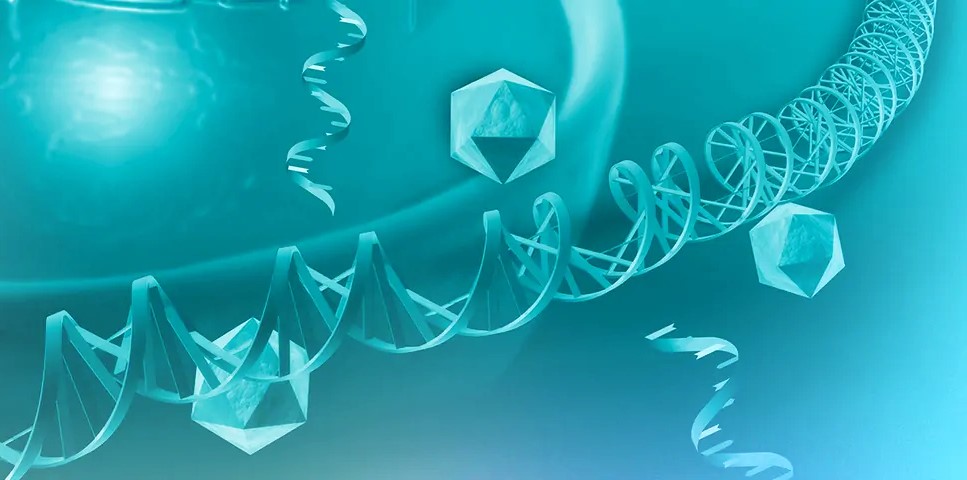Reverse Aging Technology – Epigenetic Marvels
Welcome to the cutting edge of scientific research, where new developments in reverse aging technology are revolutionizing our knowledge of the aging process. We’ll explore the intriguing field of epigenetic modifications in this blog, including how they may be able to slow down or even reverse the aging process. Get ready to set out on a journey that has the potential to transform our understanding of aging and reveal the key to eternal youth.

The Aging Conundrum
Let’s start by unraveling the mysteries of aging. From the wrinkles on our skin to the decline in cognitive function, aging has long been considered an inevitable part of the human experience. But what if there was a way to defy the hands of time?
Epigenetics Unveiled
Enter the realm of epigenetics, a field of study that explores how external factors can influence gene expression. Epigenetic modifications, such as DNA methylation and histone acetylation, play a crucial role in determining which genes are activated or silenced. Scientists are now leveraging this knowledge to manipulate the epigenome and, in turn, influence the aging process.
The Power of Epigenetic Manipulations
Recent research has uncovered the potential of epigenetic interventions in reversing aging. By resetting or rejuvenating cells through targeted modifications, scientists believe they can not only slow down the aging process but potentially turn back the clock on aging-related damage. Imagine a world where age becomes just a number, and vitality knows no bounds.
The Breakthroughs
Explore the latest breakthroughs in reverse aging technology, from experiments with animal models to promising results in human trials. Discover how epigenetic therapies are paving the way for a future where age-related diseases may become a thing of the past. Scientists Shock the World with Age-Reversing Elixir! Is Immortality Within Reach?”

Ethical Considerations
As with any groundbreaking technology, ethical considerations come into play. Dive into the ethical dilemmas surrounding reverse aging, including questions about access, affordability, and the potential societal impact of a population that ages more slowly.
The Future of Aging
A glimpse into the future, where reverse aging technology may become a standard part of healthcare. Explore the possibilities of a world where people not only live longer but also lead healthier, more vibrant lives.
Revolutionize Your Life: Embrace the Future of Aging with These Simple Tips!
The possibility of reverse aging technology challenges our preconceptions about aging in this era of unparalleled scientific advancement. A longer, healthier life is becoming a real possibility as research advances and discoveries are made. Come along with us as we embrace the thrilling quest to discover the keys to eternal youth via the wonders of epigenetic modifications. Age is just a number, after all, and the future appears to be brighter than ever.
References:
Epigenetics and Aging:
Bird, A. (2007). Perceptions of epigenetics. Nature, 447(7143), 396-398.
Fraga, M. F., & Esteller, M. (2007). Epigenetics and aging: the targets and the marks. Trends in Genetics, 23(8), 413-418.
Epigenetic Interventions:
Egger, G., Liang, G., Aparicio, A., & Jones, P. A. (2004). Epigenetics in human disease and prospects for epigenetic therapy. Nature, 429(6990), 457-463.
Sen, P., Shah, P. P., Nativio, R., & Berger, S. L. (2016). Epigenetic mechanisms of longevity and aging. Cell, 166(4), 822-839.
Animal Models and Human Trials:
Ocampo, A., Reddy, P., Martinez-Redondo, P., Platero-Luengo, A., Hatanaka, F., Hishida, T., … & Belmonte, J. C. I. (2016). In vivo amelioration of age-associated hallmarks by partial reprogramming. Cell, 167(7), 1719-1733.
Horvath, S., & Raj, K. (2018). DNA methylation-based biomarkers and the epigenetic clock theory of ageing. Nature Reviews Genetics, 19(6), 371-384.
Anti-Aging Breakthroughs:
Sinclair, D. A., & Guarente, L. (2006). Unlocking the secrets of longevity genes. Scientific American, 294(3), 48-57.
Lopez-Otin, C., Blasco, M. A., Partridge, L., Serrano, M., & Kroemer, G. (2013). The hallmarks of aging. Cell, 153(6), 1194-1217.
Ethical Considerations in Aging Research:
Campisi, J. (2013). Aging, cellular senescence, and cancer. Annual Review of Physiology, 75, 685-705.
Kaeberlein, M. (2013). Longevity and aging. The FASEB Journal, 27(6), 2011-2019.

Great – I should definitely pronounce, impressed with your website. I had no trouble navigating through all tabs as well as related information ended up being truly easy to do to access. I recently found what I hoped for before you know it in the least. Reasonably unusual. Is likely to appreciate it for those who add forums or anything, website theme . a tones way for your customer to communicate. Excellent task..
Fantastic post but I was wanting to know if you could write a litte more on this subject? I’d be very grateful if you could elaborate a little bit further. Cheers!
Loving the info on this web site, you have done outstanding job on the articles.